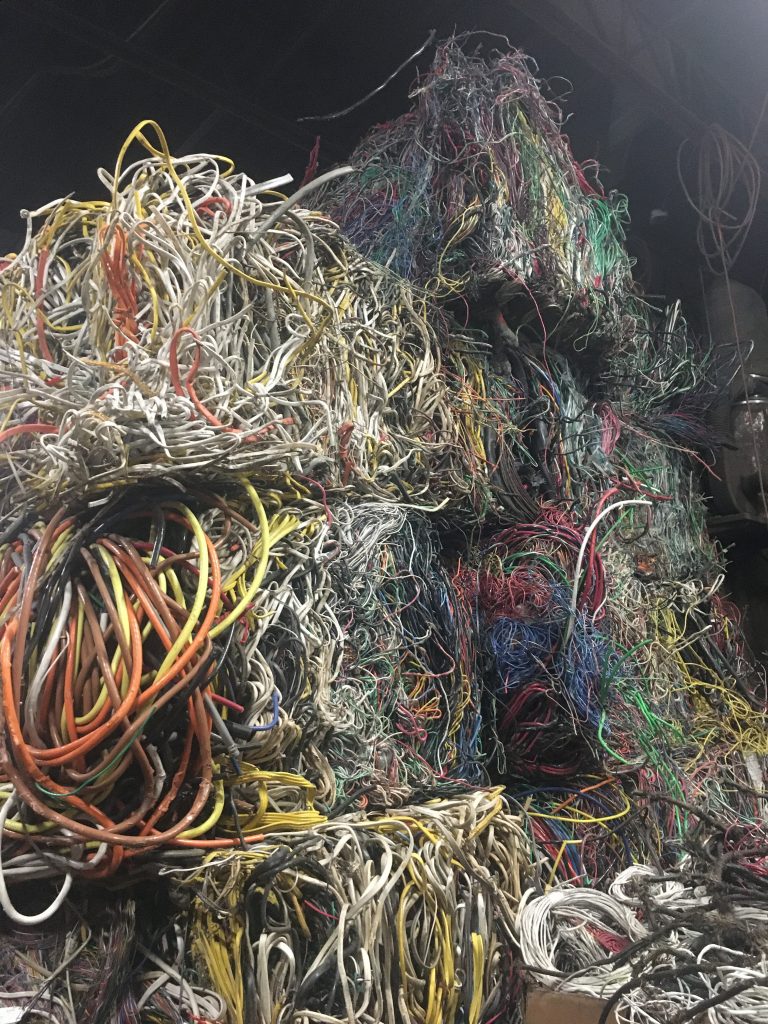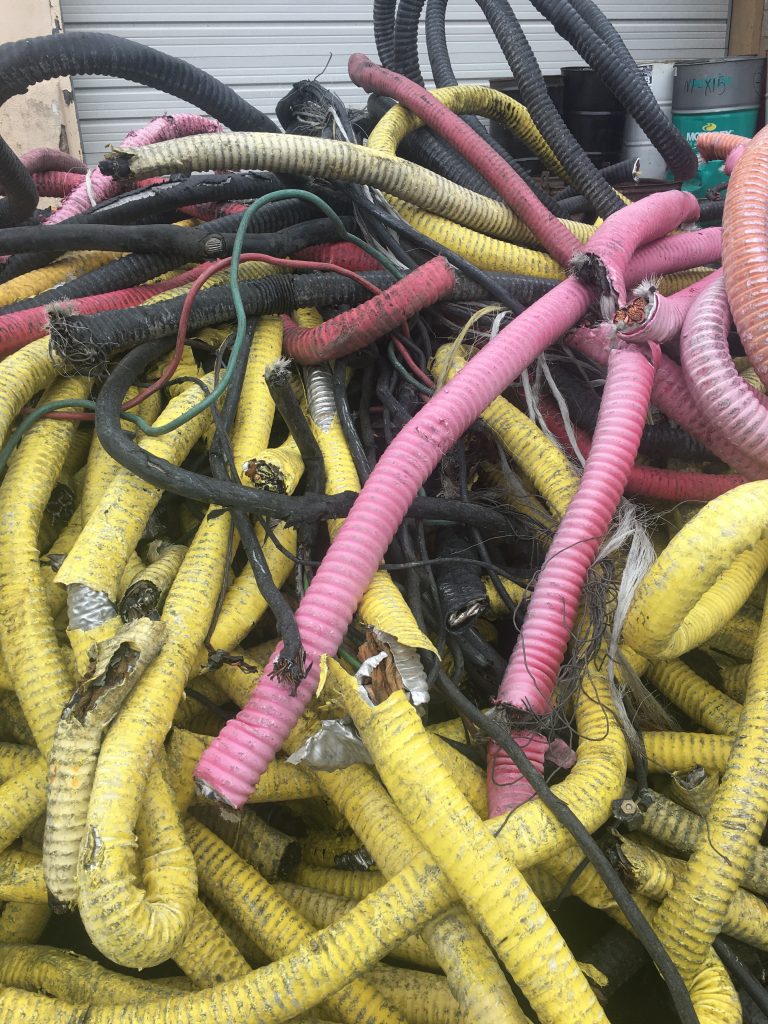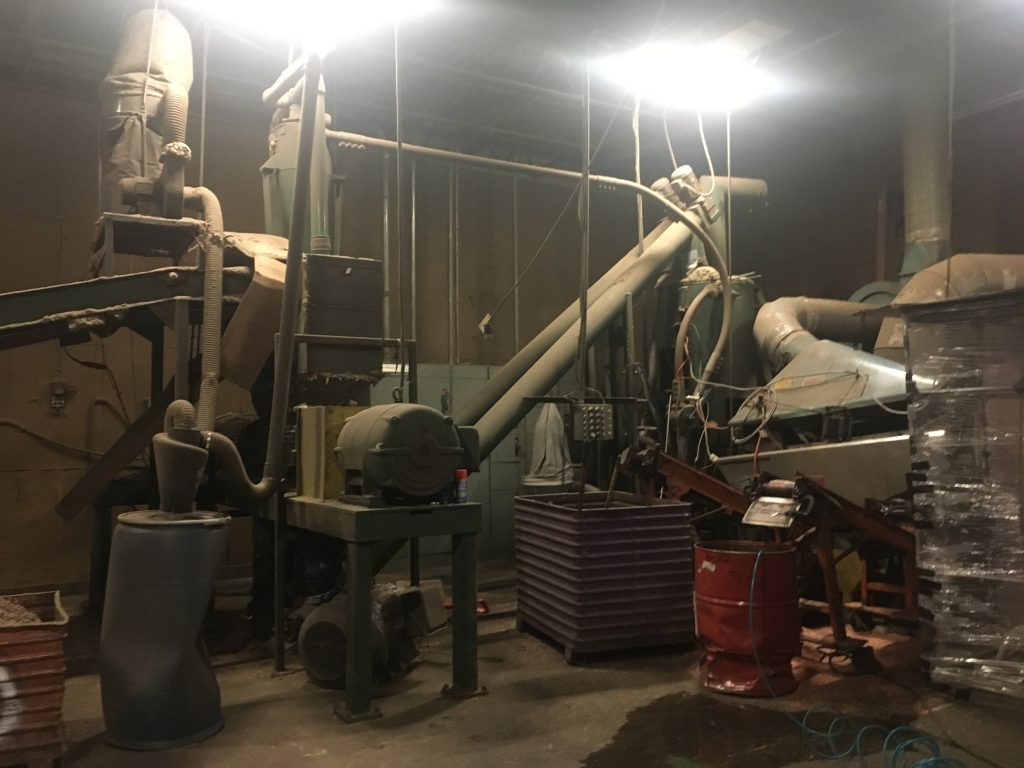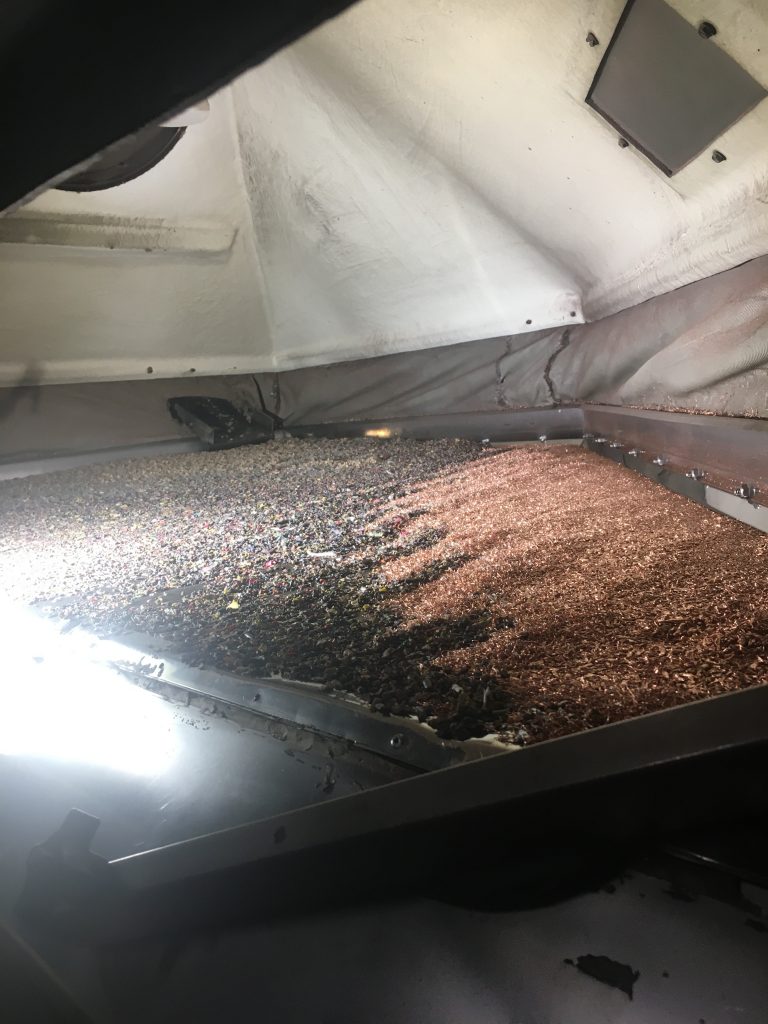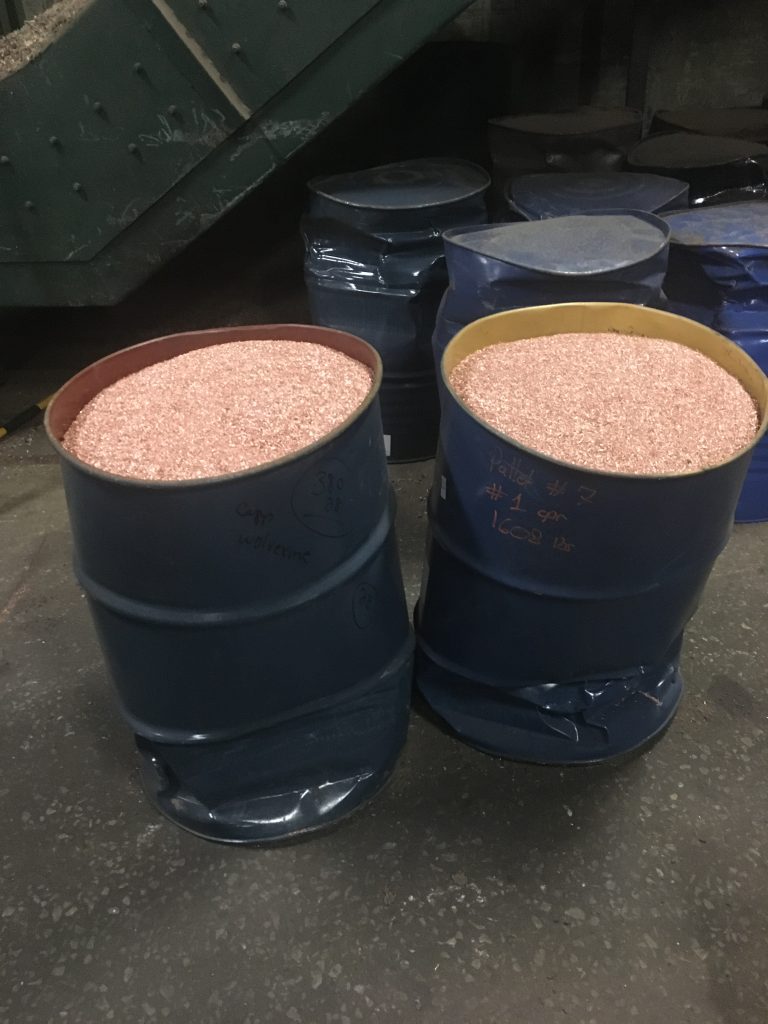When thinking of recycling, we typically think of paper, plastics, and cans. But there is something else found all throughout our lives that you may not have considered as recyclable—wires. Wires run through our homes and workspaces, power our appliances, and charge our phones. Copper conducts electric current better than any other metal except silver and is the favored material for electrical wires. According to the Copper Development Association Inc., an average single family home contains 439 pounds of copper. Copper is essential to powering many aspects of our daily lives, and it is important to recycle this material. The EPA estimates that recycling copper requires only 10-15% of the energy required to mine and refine virgin copper, saving energy and keeping valuable resources out of landfills.
Locally, Pasco Inc., a metals recycling facility in Philadelphia, buys and processes copper-insulated wire for recycling. This recycling process starts with baled wire. The wire can be sourced from all over, including construction, appliances, and even nuclear power plants! While the source and size of these wires can vary greatly, they all have something in common: a copper core.

Baled wire waiting to be processed 
Large wires from a nuclear power plant ready to be recycled
To begin the recycling process, the copper must be removed from the insulation. To do this, wires are first sent through a series of three chopping machines. These machines mechanically break down the wire into small pieces and remove the insulation from around the copper.

A chopping machine, one in a series of three, is to the left in this image. The shaker table is pictured to the right.
Now that the copper is free from the insulation, the two materials must be separated. The finely chopped material moves to a shaker table– a tilted surface that shakes rapidly, separating the copper pieces from the insulation. The heavier pieces (the copper) migrate to the higher end of the table, while the lighter insulation moves to the lower end of the table. This process is very effective in separating the copper from the insulation, which is an important step in maintaining the copper’s recyclability. The copper found in electrical wires is 99.99% copper. It is important to maintain this high grade of purity so that it can be melted down and recycled into new wires. Pasco Inc. has looked for markets to recycle the insulation stream of this recycling process, but currently this material is landfilled.

The shaker table vibrates to sort the fine particles by density. The copper can be seen shifting to the right, while the insulation has moved to the left on the table. 
Two barrels full of the post-processed copper chips. This copper can now be melted and manufactured into a variety of new copper products.
There are many environmental benefits to recycling wires, but due to the value of copper and its recyclability, you can also get paid for it! Many scrap metal yards will weigh and pay you for your old wires and electrical cords. So before you toss that frayed cord or tangled wire mess into the trash, consider taking it to your local scrap yard for recycling.
Municipal and state regulations require that residents, commercial establishments and non-residential establishments recycle all recyclable materials. Commonly recycled materials include paper, plastic, glass and metal. You should check with your hauler for a complete list of acceptable recyclable materials.
